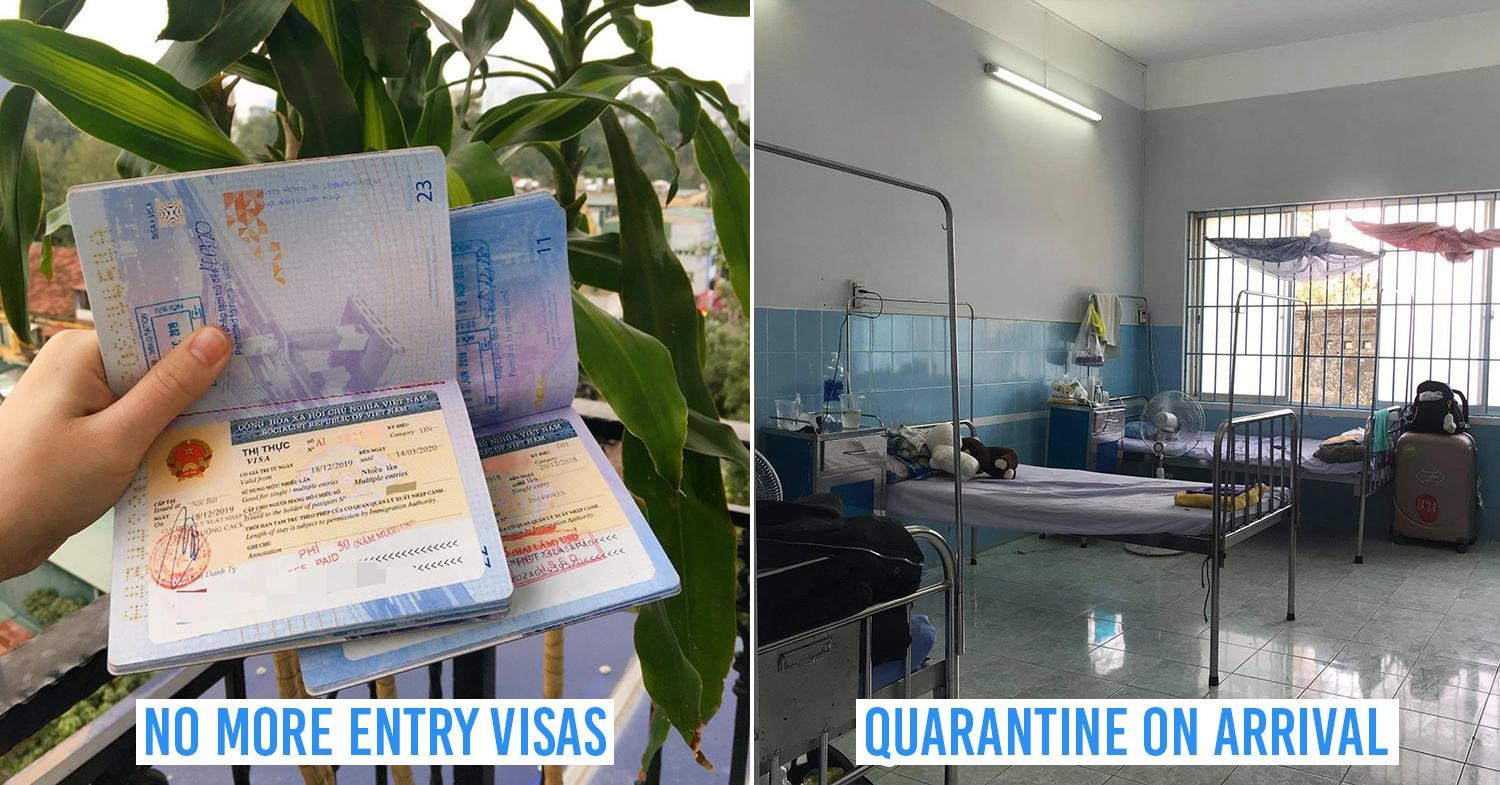What visitors in Vietnam during the COVID-19 pandemic should know
Just last year, Vietnam welcomed over 18 million international tourists and business visitors. However, international travel into Vietnam is now slowing to a halt now that our country’s tally of confirmed COVID-19 cases has crossed 120.
In order to contain the transmission of the virus, the Vietnamese government has now responded with strong measures to manage arrivals and prevent the virus from spreading. For what to expect as a visitor in Vietnam during the COVID-19 period, here are some things you need to know.
1. Vietnam has banned entry of all foreigners
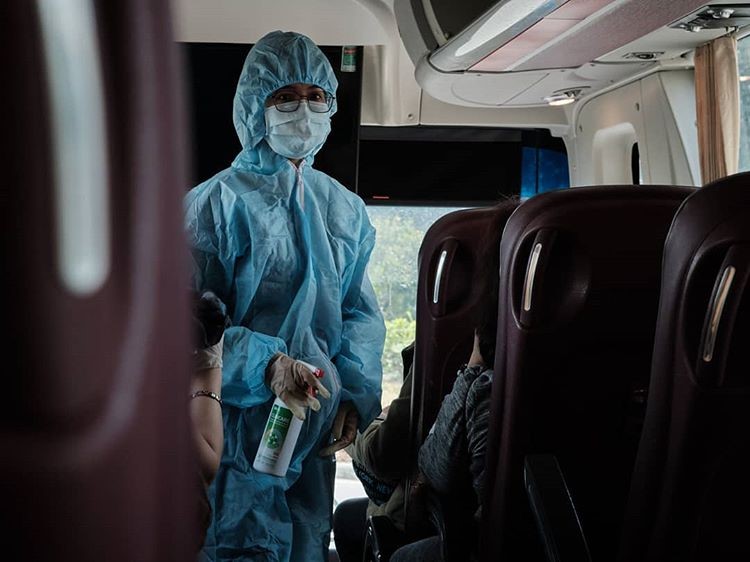
Image credit: @unholycrab
By 22nd March, Vietnam’s government had issued a ban on all foreigners entering the country. Prime Minister Nguyen Xuan Phuc also announced a cancellation of all international flights in order to stem the spread of COVID-19.
2. Health checks and possible quarantines for all visitors in Vietnam during the COVID-19 pandemic, including domestic travellers
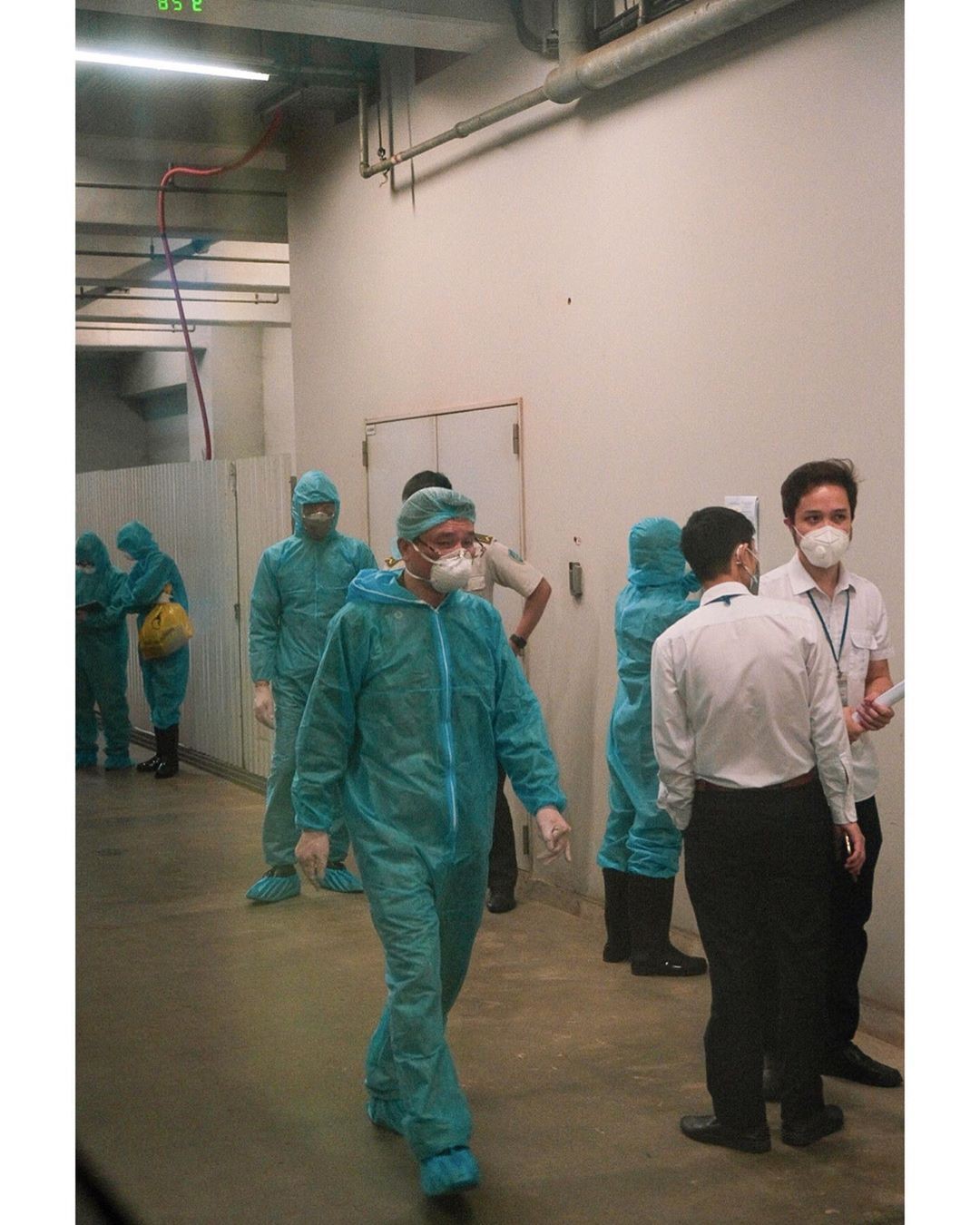
Image credit: @emi.gallery
All foreigners who have arrived in Vietnam must submit medical results that prove they have tested negative for coronavirus. These reports must be approved by recognized authorities in the visitor’s last checked-in country, and also by Vietnam’s medical officers.

Image credit: @thesafarinafadzil
Everyone arriving in Vietnam will face health checks, so try to bear with the long queues at the airports waiting to be tested as this is compulsory.

Image credit: @yuji_555
All visitors entering Vietnam before the entry ban have been brought to Vietnam’s official quarantine facilities across the country.
Vietnam Airlines has also made its latest announcement on its website about implementing compulsory health checks on all domestic travellers. Travellers with Vietnam Airlines will need to fill in the Vietnam Health Declaration form on the official mobile app or website before boarding – read on to find out how.
3. Visitors in Vietnam during the COVID-19 pandemic should make a health declaration

Image credit: Google Play Store
If you have been in Vietnam for over 14 days and don’t have to go into quarantine, you’ll still need to make a health declaration on your phone or computer.
Download the Ministry of Health’s NCOVI app (in Vietnamese) or the Vietnam Health Declaration app (available in English and several other languages) to make health declarations online.
These apps are available on both Android and IOS, but if neither work for you, fill in the website form instead. Click on the UK flag to view it in English.
The apps will have you answer a questionnaire about your itinerary for the past 14 days, your health condition, and who you have been in contact with. The results will be sent back to the Ministry of Health for evaluation, and staff will be in touch if you need to be quarantined.
4. You’ll be asked to go into self-quarantine if you’ve been in contact with COVID-19 patients, or are suspected to be exposed to the virus

Image credit: @gjusi_braendli
If you happen to work or live in the same place, travel in the same group, or have sat 2 rows away from those who are infected or being tested for coronavirus, you’ll be asked to go into self-quarantine for 14 days.
This means you can be quarantined at home, but under the surveillance of the nearest medical staff. You can contact the hotline of the Ministry of Health, tell them your situation, and they will assign you a medical staff to attend to you while you’re in quarantine. You’ll be requested to sign a self-quarantine commitment and expected to abide by the self-quarantine rule until 14 days are over.
Find out more about the self-quarantine process advised by the Ministry of Health here.
If you cannot understand Vietnamese, drop the link into one one of many of Vietnam’s expat Facebook groups for support from friendly local netizens.
5. Call the hotline immediately if you have developed symptoms of coronavirus
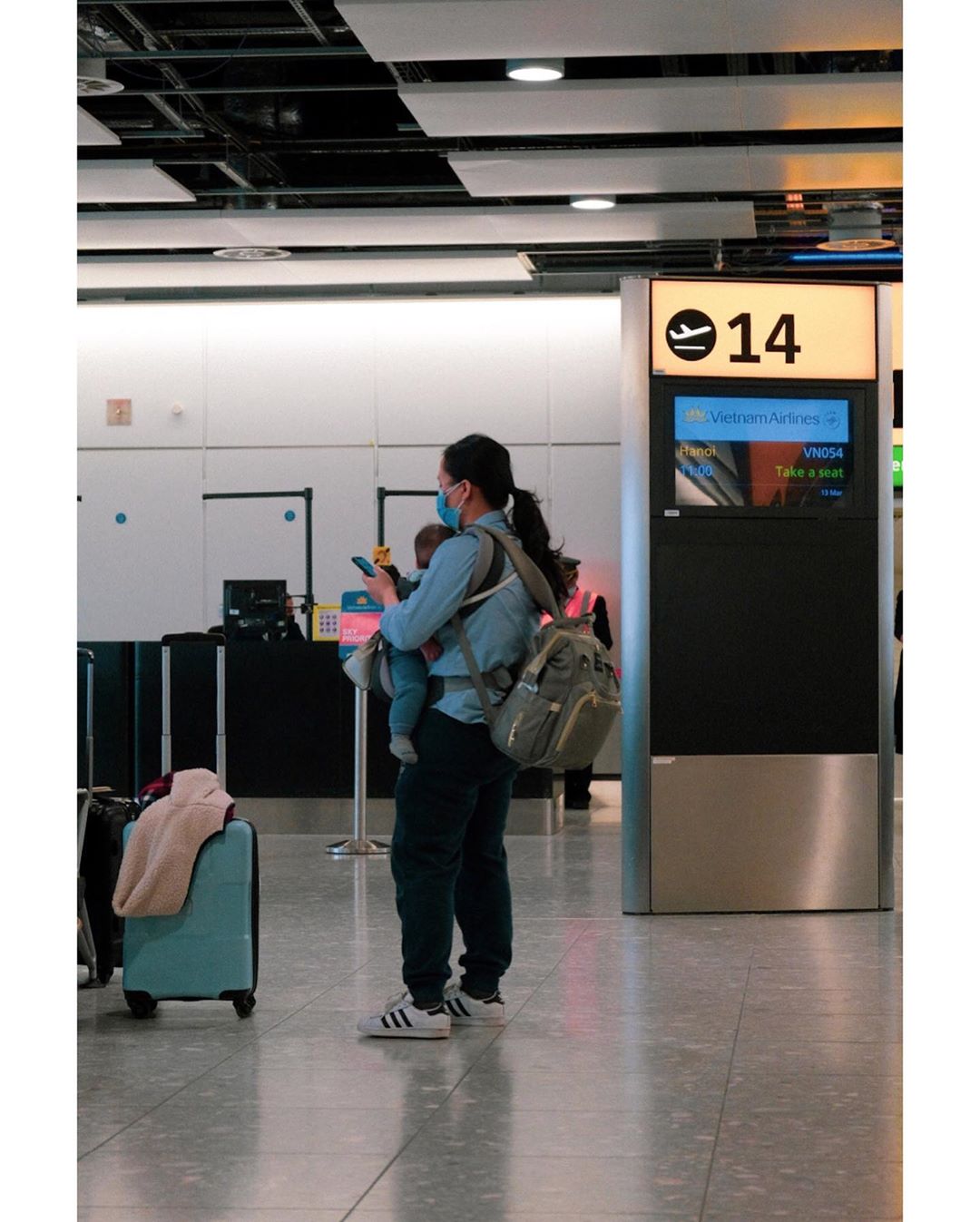
Image credit: @emi.gallery
The moment you have developed symptoms such as fever, cough, or shortness of breath, do not leave your residence or location. Call the medical hotline at 1900 9095 or 1900 3228, and a medical staff member will come to your assistance in the shortest time possible.
If you go out to a clinic or hospital when having symptoms and the results come out positive, the whole place will be cordoned off for disinfection and everyone in your presence will be quarantined.
6. Foreigners will have to pay for COVID-19 treatment in Vietnam

Image credit: Bệnh Viện Quốc Tế City
Foreigners and Vietnamese will not have to pay fees for quarantine and testing, according to an announcement by Prime Minister Nguyen Xuan Phuc.
While Vietnamese citizens will receive free treatment if they test positive, foreigners will have to pay for the treatment costs if they are infected with coronavirus.
7. Do not expect a fancy quarantine facility – though the facilities have all the basics you need

A room in quarantine ward
Image adapted from: Nguyễn Ngọc Hiếu
Another thing you need to know before visiting Vietnam and facing possible quarantine is that quarantine is not a retreat. Even though many hotels across the country offer their facilities for quarantine, it doesn’t mean you’re guaranteed to end up in a 5-star-hotel, enjoy your 14-day quarantine on a plush bed, and eat buffet food the whole day.

A meal inside one of Vietnam’s quarantine facilities- Vietnamese crab noodle soup and dessert
Image adapted from: Nguyễn Ngọc Hiếu
Vietnam is using hospitals, schools, dormitories, and other places as makeshift quarantine wards too, so there’s no promise your quarantine will be a comfortable and fancy one.

A meal inside one of Vietnam’s quarantine facilities- chicken rice with soup, banana, and lemonade
Image adapted from: Nguyễn Ngọc Hiếu
What the government can guarantee is that you’ll be offered complimentary toiletries, nutritious meals, and water to drink every day until you’re good to go. You are free to use your phone and share your quarantine experience on Facebook or Instagram.
8. All entertainment facilities in the country are temporarily closed

The Opera House in Ho Chi Minh City- temporarily closed
Image from The Smart Local Vietnam
If you happen to be in Vietnam these days and see empty streets in the evening, don’t be surprised. According to a newly issued regulation by the government, all entertainment facilities such as pubs, bars, karaoke studios, massage parlours, and cinemas must close until the end of March.
Several attractions in the city are also closed, including religious sites such as churches and pagodas. The government is also encouraging people to not participate in large gatherings, so don’t expect summer pool parties these days.
Instead, catch up with your friends by hosting an online watch party – completely safe and entertaining for all involved, as long as you have an internet connection and a Facebook account.
9. Buy fabric face masks if you can’t find surgical masks
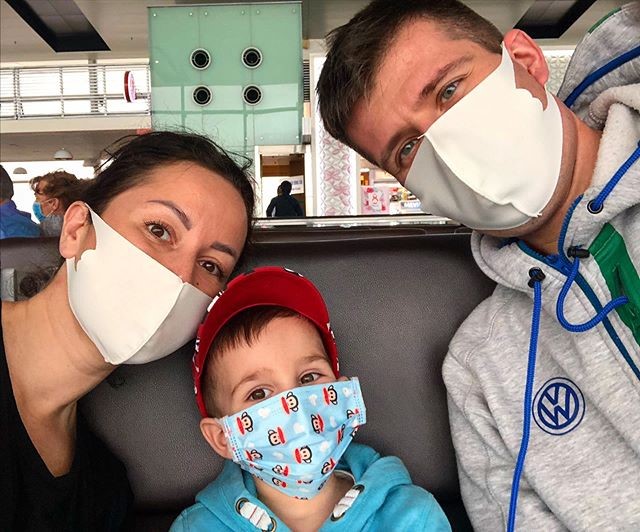
Image adapted from: @ifeshenko
The government has made it a must to wear face masks in public places. Many people are seen wearing masks on the streets, but many tourists are not. If you’re new to the country and having problems buying surgical masks, switch to reusable fabric masks.
You can find fabric masks sold in any convenience stores and supermarkets across the country, sold at reasonable prices of VND15,000 to VND25,000 (~USD0.65-USD1.08) per mask. Buy a few so you can wash and dry them between each day of use.
10. Try not to travel within the country

Image credit: chuttersnap
If you do not face a 14-day quarantine or you have completed your 14-day quarantine, do not travel across the country. If possible, try to postpone any non-essential travel so you can play your part in lowering the chance of the virus spreading to the elderly or frail.
After all, since the virus can be asymptomatic in its early stages, you wouldn’t be able to tell if you’re breathing the same air with someone who has contracted the virus when you’re on an airplane or a bus with them. Besides, a majority of popular attractions in Vietnam have already closed to prevent further outbreaks, so there might not be anything for you to do at your destination for now.
Visitors in Vietnam during the COVID-19 pandemic should stay informed
Current visitors in Vietnam during the COVID-19 pandemic should keep up with the local government’s updates. But with the rise of COVID-19 infections across Vietnam, foreigners are not advised to visit the country at the moment in order to stem the transmission of the virus.
Instead, take your time to plan your next trip to the country, and keep up with updates from Vietnam here:
- Vietnam reports 31 new COVID-19 cases, bans foreigners from entering country
- Vietnam’s quarantine facilities are so good, netizens say it’s their dream staycation
- Vietnamese scientists & engineers invent futuristic disinfection chambers
Cover image adapted from: @vietnamtravelguide_arab and Nguyễn Ngọc Hiếu
Enjoying The Smart Local Vietnam? Follow us on Facebook, Instagram, and LinkedIn for more stories like this. If you have a story to share, email us at pressvn@thesmartlocal.com.
